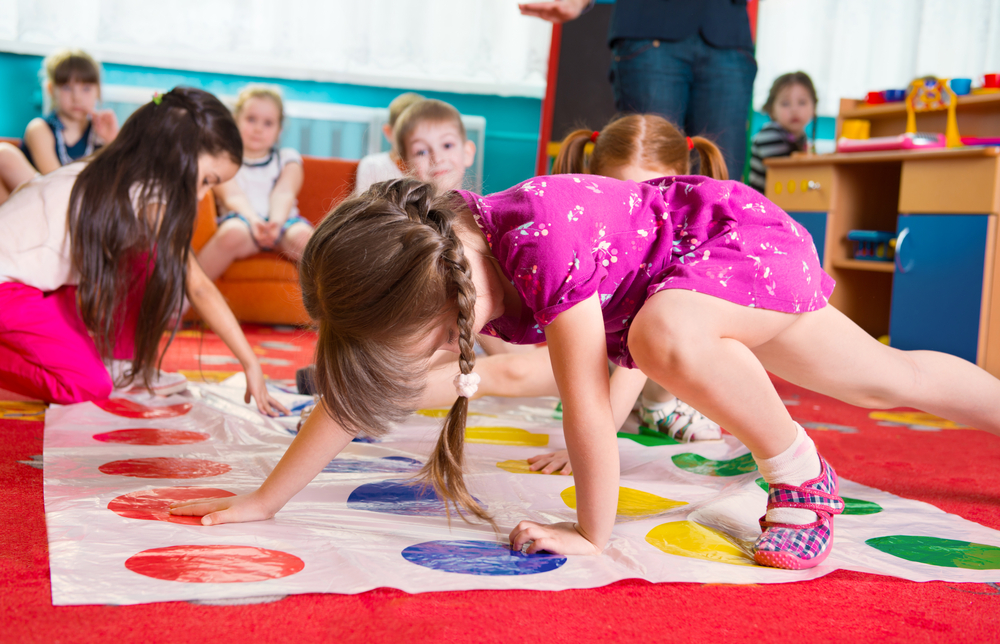Lynne Alba Speech Therapy Solutions, P.C.
3521 Lomita Blvd., Suite 201
Torrance, Ca 90505
310-856-8528
www.childspeech.net
Introduction
- Toddler Talk is a small group, early intervention speech and language program for children 18 months – 3 years of age. The program is led by a speech pathologist and a speech aide in a Mommy, Daddy & Me type format. There are 3-4 toddlers in a group, and toddlers are grouped according to their age, abilities and needs. This allows the program to have an excellent adult-to-child ratio, which gives each toddler opportunities for individualized instruction and learning.
- Philosophy: We believe early intervention must incorporate communication opportunities within an environment that facilitates interaction and play. Parent training/participation is an essential component of Toddler Talk. Parents are essential to ensure skills learned are facilitated and carried over to a child’s natural environment.
Program Description
A. Overview: The program addresses development in the areas or basic communication, receptive language, expressive language, speech production and social communication/play skills. Specific aspects of these developmental areas are as follows:
Basic Communication: Communicating wants and needs via pointing, gesturing, singing and/or talking. Toddler Talk teaches your child to use natural gestures and pointing, vocalizations and verbalizations, basic sign and pictures to communicate, as is appropriate to their needs.
Receptive Language: This area is also called Language Comprehension, and it involves the ability to understand what is said to you. Toddler Talk teaches your child to understand and follow routine as well as novel directions. Comprehension or vocabulary and basic concepts, early grammar, and early sentence structure, including understanding simple questions, are also addressed.
Expressive Language: this area involves the ability to express yourself. We teach your child to communicate using words, phrases and simple sentences. This aspect of the program targets developing the use of single words, 2-3 word phrases and simple sentences including the ability to ask questions.
Speech Production: This area involves how clearly we talk. Toddlers are expected to use certain sounds and sound combinations for their age. We help to develop oral-motor skills for speech production. We also develop your child’s ability to use age-appropriate sounds so that they can use these sounds in syllables, words, phrases and simple sentences to communicate and be understood.
Social Communication/Play: This area involves using communication to interact with others. We work on many skills that would improve your child’s ability to engage with others such as greeting, listening, sharing, turn-taking, playing side-by-side with peers, pretend play and using language with adults and peers to request, share information and engage with others.
B. Approach: We use three types of approaches in Toddler Talk. These are: clinician-directed, child-centered/facilitative play and a combination or the two.
- Clinician-Directed:
- Direct and repetitive approach such as drilling vocabulary or sounds but in a play format.
- This is done in an engaging way such as using fun toys and manipulatives in activities designed to help generalize skills to a more natural setting.
- The clinician does a lot or modeling and cueing with praise and rewards given for accomplishing an activity or goal.
- Child-Centered/Facilitative Play:
- A more child-directed approach. The clinician follows your child’s lead or focus of attention. This method reinforces language occurring in a more natural way and as a result of your child’s interests and actions in a play environment.
- More closely follows the way language is typically learned.
- Includes activities such as imitating a child’s play and talk, as well as talking along with a child during play.
B. Activities:
Toddler Talk includes a wide variety of activities that are thematic-based (different themes each month). General activities include but are not limited to:
- Gestures/Finger plays/Signs
- Music & Songs
- Arts & Crafts
- Sand/Water and Other Texture Play
- Play with Manipulatives (blocks, sort & stack toys, puzzles, etc.)
- Pretend Play
- Gross Motor Play (jumping, rocking, sliding, tunnels, climbing, etc.)
- Books and Flannel Board Activities
Parent Education
Parent Education: Parent education and training is an important part of our program. Parents can participate in several ways:
- Participating in the session with your child with guidance by the clinician in terms of what is being targeted and how to target it.
- Handouts in the form of parent education and/or home activities, which are given and reviewed with parents once a month
- Discussion with your therapist 15 minutes prior to or following your session (depending on the group) regarding your child’s performance, home activities, or arranging a convenient time to conference further about your child (please schedule with your therapist).
Progression Through the Program
- Progress toward goals will be determined in six-month progress reports until your toddler is ready for a discharge report
- A discharge report with levels of performance and appropriate recommendations will be provided at the end of the program
Structure
Mentors: Licensed Speech/Language Pathologists assisted by trained speech assistants.
Members
Toddlers 18 months to 3 years, grouped according to their age, ability and needs. For children with speech and language difficulties/delays.
Size
Three to four toddlers with two adults.
Program Length
Once or twice a week. The group is 90 minutes: 60 minutes of direct therapy, 15 minutes of parent conferencing/education and 15 minutes of transition (clean up, therapy planning for the next session, documentation of your child’s progress).
Funding
Funding may be provided through one of the local California Regional Centers if your child qualifies. For information, please consult the Web for your local Regional Center. You can explain that you need assistance with getting your toddler’s speech and language assessed. Please let them know that we have space available, should your child qualify, and that we would be happy to serve you. If your child does not qualify, we offer the same program through private pay. Private pay Toddler Talk is a membership program, and you will need to sign up in one-month increments. You will be billed for all sessions whether your child attends or not.




